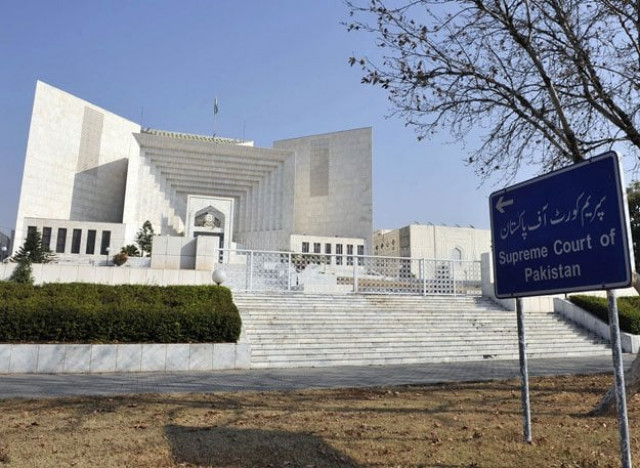Govt asked to petition against SC verdict
Senate panel suggests appeal against apex court direction to hold elections on July 27

PHOTO: AFP
Senate Standing Committee on Interior on Thursday asked the government to file a review petition against a Supreme Court judgment that directed the government to hold local bodies’ elections in Islamabad relying on the unapproved draft of the ICT Local Government Bill 2015 if need be.
The court had, on March 6, 2015, asked the government to hold the elections in Islamabad on July 27 according to draft contents of the proposed bill, in case the government fails to get the law passed by that day.

“Our intention [to go for a review] is not to create hurdle in devolution of powers to elected representatives. It is based on the understanding that this judgment is against the spirit of the law and required an immediate review,” committee chairperson Rehman Malik said. He said that the committee would convey the decision in writing to the Ministry of Law so that it could initiate the process.
The committee held a meeting at the Parliament House on Thursday.
Malik said if accepted, the SC judgment would set a bad precedent. He said the parliament was currently working on the proposed bill and local government elections could only be held on the basis of approved legislation by the parliament.
State Minister for Interior Balighur Rehman, however, said the act of the committee would be seen as a delaying tactic. To this, Barrister Saif observed both the Election Commission of Pakistan (ECP) and the federal government were in trouble due to that “unwise” judgment. “It [the judgment] reflects as if the parliament is of no use. How can we go for an election in the absence of mandatory legislation,” he questioned.
The bill has already been approved by the National Assembly, while it is currently pending with the Senate. As the Senate has challenged holding LG polls on a non-party basis and also a number of clauses of the proposed law, it is likely that it would be referred back to the National Assembly for a fresh vote following approval from the Senate.

The committee also discussed loopholes and overlap of powers, observing if the bill was adopted in its current form it would cause conflict between local governments and other government departments including the CDA, the ICT administration and the Islamabad Police.
A CDA official was of the view that the levying and collection of taxes by the municipal corporation and the union councils instead of the CDA, as the bill envisions, “will create problems in the future”.
The CDA Deputy Director General (Land), Hamza Shafqat said that water management had also been given to the local government, adding local bodies would not be able to deal with the water supply issues.
Shafqat said that powers such as development of residential sectors and housing schemes would rest with the CDA as per the CDA Ordinance 1960, and the local government would be requiring mandatory permissions from the civic agency in case it intended to execute any power falling in the CDA’s mandate.
Barrister Saif said that there were chances of conflict between the departments due to possible overlap of powers.
It was decided that representatives of the law ministry and the ECP be called to have their point of view over the situation at the next meeting of the committee expected to be held on June 23.
Published in The Express Tribune, June 19th, 2015.


















COMMENTS
Comments are moderated and generally will be posted if they are on-topic and not abusive.
For more information, please see our Comments FAQ